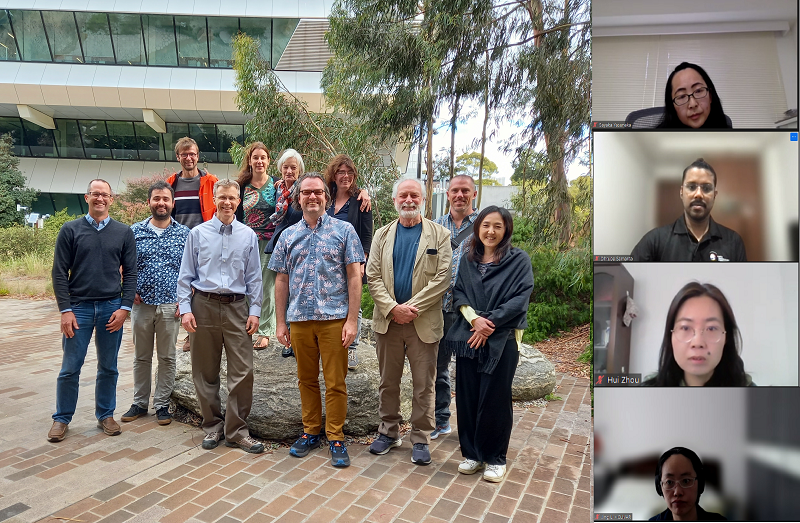PRP-15 organized in February 2023

The 15th Session of CLIVAR Pacific Region Panel (PRP) was successfully organized on 13th February 2023 in Monash University, Melbourne, Australia and online. The panel has not met in person in a long time since COVID. The PRP-15 was organized in conjunction with the 2023 CLIVAR joint workshop on the tropical Pacific and its interbasin interactions, which is co-organized by PRP and its two working groups as well as CLIVAR Tropical Basin Interaction Research Focus (TBI RF).
In the opening session, the PRP co-chairs (Shayne and Sophie) welcomed the participants, briefly introduced the membership updates, and communicated the SSG feedback to the PRP 2022 Annual Report.
In session 1 of the meeting, updates on PRP activities were presented by the respective focal members. The updates on the two PRP working groups, i.e., the Tropical Pacific Decadal Variability Working Group (TPDV WG) and ENSO Conceptual Model Working Group, were presented by the coordinators. Both of the two WGs were featured with ECS participants, virtual communication via emails and regular telecons, and both are at the stage to finalize their review papers, which is the main task for the WGs during the workshop following the PRP-15. The outcomes of the ENSO Summer School, status and next steps of ENSO metrics, and the updates on ocean isotopes were also briefly presented.
Session 2 of meeting was dedicated to the observations and TPOS funded process studies. Dr. Hui Zhou presented the progress of NPOCE on behalf of Dr. Fan Wang, mainly including the updates of Scientific Steering Committee, completed and planned field experiments, the 4th NPOCE symposium and NPOCE webinar series, as well as the cooperation effort on partnership development and data sharing. Dr. Sophie Cravatte briefly introduced the TPOS updates, including the TPOS2020 main outcomes, the new governance of TPOS, the in situ implementation to date and TPOS funded process studies, as well as the top issues to be considered in the future. She also presented the ODYSEA satellite future mission, which will be formally proposed in mid-2023 as a competed mission in NASA's Earth System Explorers programme. The updates frow two process studies: ‘Understanding Equatorial Pacific Climate Processes via Hierarchical Coupled Modelling’ and ‘Improved Understanding of air-sea interaction processes and biases in the Tropical Western Pacific using observation sensitivity experiments and global forecast models’ were presented by Dr. Andrew Wittenberg and Dr. Kristopher Karnauskas respectively.
In the third session, the PRP workplan for 2023 and onward were fully discussed. PRP members in turn introduced themselves and the possible linkage and contributions to the panel. Dr Antonietta Capotondi presented the new CLIVAR RF on Marine Heatwaves. Round table discussion on the future PRP research topics were then conducted. A few interesting topics were brought by PRP members from brainstorming, e.g., contribution to the marine heatwave RF, observed and projected warming pattern across the Pacific, model biases examination (e.g., equatorial cold tongue biases) and AI application in model bias reduction, patterns of atmospheric teleconnections in a changing climate, sea level rise (pattern) in the Pacific, etc. In particular, a proposal on TROpical Pacific SST warming patternS (TROPICS) Working Group, led by the CLIVAR Climate Dynamics Panel, was introduced by Dr Malte Stuecker to the panel, following a science talk given by Dr Shayne McGregor on the diverging observed and modelled changes in the Pacific. Possible membership from PRP to this new WG is to be identified to the new WG.











Add new comment